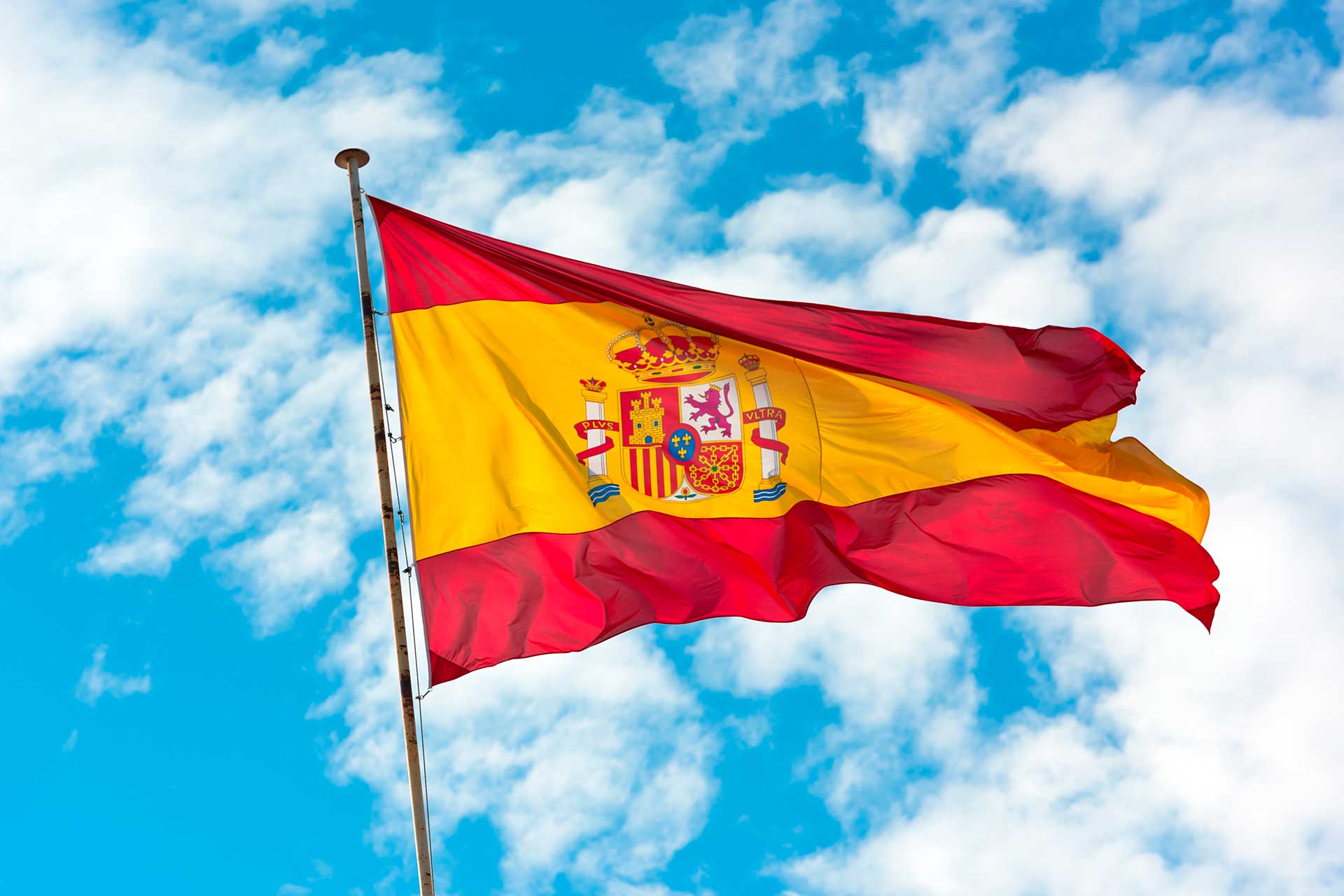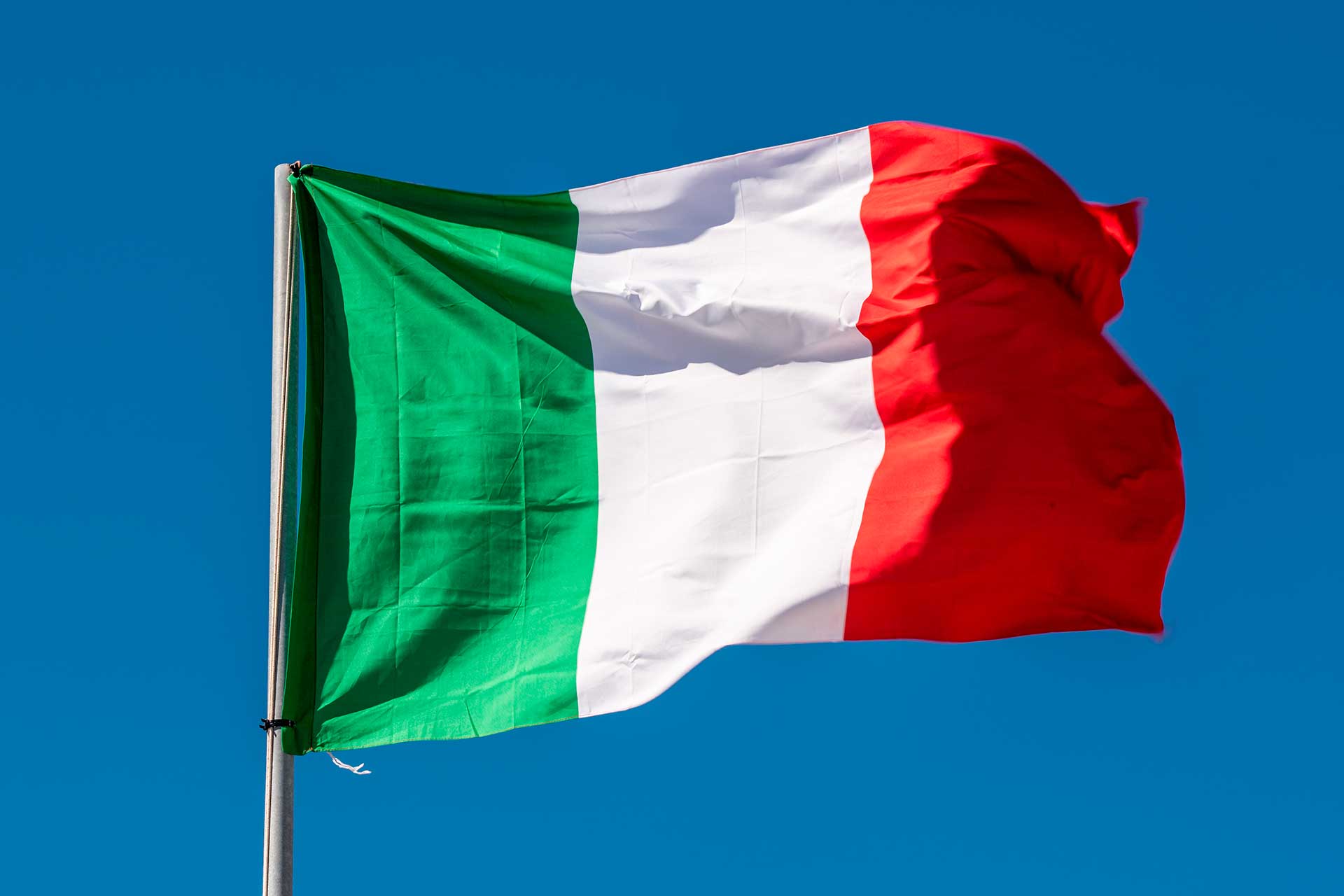April 01, 2025
Many people are attracted to move to Portugal by the opportunity to live in a country that, according to Numbeo and Legatum Prosperity Index, is consistently ranked among the top 30 most prosperous countries on the planet. Among its strengths are stable economic growth, very good climatic indicators, low cost of living, high personal and public safety of the population, low unemployment and a developed health care system. The Portuguese Republic is a member of the EU, so in the long run you can become a citizen of the European Union with a wide list of rights and preferences.
Immigration lawyers will help you to find the best way to move to Portugal, in the shortest possible time and without special costs. You have the opportunity to get a free consultation with a specialist – sign up right now.
Reasons to choose Portugal for relocation
One of the main reasons to move to Portugal is the high prosperity of the local population, growing every year. In the Human Development Index compiled by the UN, the personal score of the Republic is 0.874 points, which means “very high”. In the ranking of 193 countries and territories, the state is in 42nd place and demonstrates improvement of key indicators every year. For example, since 1990, life expectancy here has increased by 8 years, and GNI (gross national income) per capita – by more than 50%.
Emigration from other countries to Portugal is also beneficial because of such advantages:
- Available employment.
The labor market in Portugal is extremely stable. The National Institute of Statistics (INE) estimates that the unemployment rate here is 6.6% and is gradually decreasing. There has also been an increase in the number of employed people in 2025, which indicates the availability of vacancies in various fields of activity. The average monthly salary in the republic is equal to 1600 EUR. This income is quite comparable to the cost of living – approximately one person in Portugal needs 600-800 EUR per month to cover basic expenses. - Wide prospects for entrepreneurs.
Portugal attracts foreign businessmen with its funding programs for startups and sole proprietorships, as well as free trade within the framework of the European Union and the Commonwealth of Portuguese-speaking countries. For example, the Institutes for Employment and Vocational Training, Small/Medium Business Support and Investment regularly establish non-refundable grants and favorable loans, including for foreigners. The state project on immigrant entrepreneurship development is also successfully implemented here, which makes it easier to enter the local market. - Favorable living conditions.
Portugal is a warm and sunny country in Western Europe, most of it washed by the Mediterranean Sea and the Atlantic Ocean. Winters are dry and mild, while summers are hot and long. The lack of heavy industry has an excellent environmental impact. According to Numbeo, the climate index in the country is 97 points (very high), and the pollution index – on the contrary, 28 points (low). The real estate market offers properties to suit all tastes, from private houses in small seaside towns to modern new buildings in Porto and Lisbon. - Good medicine and education.
In Numbeo’s health ranking, the Republic ranks 23rd among all countries studied, with an individual score of 72 (which is “high”). After moving to Portugal, it will be necessary to pay mandatory contributions to the Social Security Fund, which will give the opportunity to receive free service in modern clinics with qualified staff and innovative methods of treatment. Also, according to the World Top 20 project, the state is included in the list of countries with the best education system in the world. - Personal and social guarantees.
The crime index in Portugal is very low – the country ranks 113th among 147 countries in the world. European Union laws and directives are implemented here, including a ban on discrimination against people based on their race or nationality. The state renders complex support to inhabitants, including payment of allowances (on unemployment, and also to low-income and large families), payment of integration courses, the help with search of work or registration of business.
The country is a member of a number of reputable international organizations, including NATO, Schengen Area, OECD and WTO, which is important for the personal life prospects of the population.
The main stages of relocation to Portugal
To successfully immigrate to Portugal, you need to choose the best relocation program taking into account your skills, education, plans, income level. Then you form an appropriate dossier, submit requests for a visa and residence permit in the republic. It is also important to find out in advance how long each of the stages takes and how much the whole procedure will cost.
Choosing the grounds for relocation
If you want to go to Portugal for a long term or permanently, you need to find the basis for opening an immigration residence permit. This type of residence permit can later be extended if you have a reason to live in the republic, and the time of being with it on the territory of the country is taken into account when obtaining a permanent residence and citizenship by naturalization. Popular ways to relocate include:
- full-time employment in a Portuguese company or working as a self-employed person (if your profession allows it);
- activity as a digital nomad who performs tasks remotely in the IT field and earns at least 3500 EUR per month;
- work transfer within an international corporation with a branch in the country or a long business trip;
- performing professional tasks at the invitation of a local research institute;
- reunification with family members (husband or wife, minor child or elderly parents in need of care) from among the residents of the country;
- investment in the economy of the state from 250,000 EUR to 500,000 EUR, including business registration with the creation of five or more new working places;
- education at a local university, including participation in international student exchange programs;
- registration of a startup with funding from venture capital funds or business angels and with the approval of the Agency for Competitiveness and Innovation;
- registration of refugee, subsidiary protection or other humanitarian residence permit status (for example, for victims of human trafficking).
Preparing the necessary documents
To move to Portugal, you will collect documents to form a standard immigration file:
- personal recent photos 3.5 x 4.5 cm;
- a valid passport for travel abroad;
- insurance policy or proof of participation in the National Health Service;
- a contract for the sale or lease of a property or information from the owner (for example, a relative) about the provision of accommodation for you;
- a document showing the amount and source of your earnings, such as a bank statement or a work contract showing your salary;
- taxpayer and social security identification numbers (to be issued upon arrival in the country);
- checks for payment of administrative fees at each stage of the procedure.
You supplement the general dossier with supporting documents according to the program of emigration from another country to Portugal. Examples: an investor certificate, an employment contract with a local company or a marriage certificate with a citizen/resident of the country. You will also need two applications – one for a visa and one for a residence permit. The first one is submitted to the consulate or embassy, the second one – to the migration authority on the territory of the country upon arrival there.
Processing terms and cost of procedures
At the first stage of immigration to Portugal you apply for a visa, the exact terms of granting which depend on the workload of the diplomatic mission in your country. On average, the procedure takes a month and a half. Upon arrival in the country, you need to get a residence permit, which is made up to 60 days. Also take into account the time for preparation of the dossier, solving logistical and transportation issues, waiting for reception in the authorities. According to the reviews of foreigners who moved to the country, the whole process takes about 3-4 months.
The cost of moving includes the opening of a Portuguese visa and residence permit, registration of a resident card. You pay for the services of a notary, translator, as well as legal assistance in emigrating from your country. You will also need to pay for transportation and logistics costs, rent or purchase real estate in the Republic. The table below summarizes the administrative fees relevant in 2025.
| Category of expenses | Price, € |
|---|---|
| National visa | 90 |
| Submission of application for a residence permit | 109,3–8 060 (depends on the grounds) |
You can move to Portugal much faster, easier and cheaper with a passport from any of the EU countries. As an EU citizen, you will be able to stay in the Republic with your family without time restrictions or special conditions. Check your chances for an accelerated EU passport obtainment at a free legal consultation.
Visa and migration peculiarities
To move to Portugal for an extended period of time, you need to obtain a national D visa. You can visit the country with another entry permit (including Schengen), but this does not entitle you to apply for a local residence permit. There are two options of documents with the D symbol:
- Temporary residence visa.
Replaces a residence permit and allows you to stay in the country for up to 12 months, including leaving and returning an unlimited number of times. This permit is usually issued to those who come to the country for non-immigrant purposes, such as internships, advanced training courses, extended visits to relatives or hospital treatment. - Visa for the opening of a residence permit.
Issued for crossing the national border and is valid for up to 120 days. This is the main visa for moving to Portugal for a long term stay, with which you can apply for a residence card on arrival.
With an immigrant visa, you need to get to Portugal, register at your place of residence, arrange tax and social security numbers. Then you make an appointment and visit the Agency for Integration, Migration and Asylum on the appointed day. Here you submit your dossier with your residence permit application, get fingerprinted and photographed. You can pick up your residence card in person or receive it by post.
Conditions for obtaining Portuguese residence permit and citizenship
It is possible to apply for permanent residence in Portugal after 5 years of permanent legal residence (with residence permit). There are exceptions, for example, investors can stay in the country for only a week out of 12 months, so that the year will be counted in the period of stay for subsequent naturalization. You will need to pass a language exam, have a regular official income not lower than the minimum wage, prove the absence of debts on taxes and social contributions. Permanent Resident Card is also issued at the Agency for Integration, Migration and Asylum by applying in person with an application and a package of documents.
Portuguese citizenship can also be considered after five years of residence in the country with a temporary resident card. The requirements for the applicant are the same as those for obtaining a residence permit. Portuguese passport is granted to foreigners who have no criminal record and do not pose a threat to national security. A request for citizenship is submitted through the civil registry office or at the offices of the Agency for Integration, Migration and Asylum, including online.

Life in Portugal: reviews and practical information
The list of the best cities in Portugal for moving, according to immigrants, is headed by Lisbon. The capital is the largest population center in the republic with an excellent infrastructure, the main state port, cultural and economic center. Lisbon is considered to be one of the global cities of the world because of its high importance in the spheres of finance, international trade, entertainment, education and tourism. The average monthly salary here is about 1200 EUR (after tax) with approximate living expenses of 750 EUR per person.
Also foreigners often move to Porto – the northern city of the republic, the 2nd in area and population after the capital. Like Lisbon, it is included in the List of Global Cities according to GaWC, as it is considered an important element of the world economic system. Porto is promising for employment (especially in the industrial sector) and business immigration, and it consistently demonstrates the active development of the financial, banking and IT sectors. The average salary here is at the level of 1100 EUR per month “net”, and the optimal income, according to Numbeo, is 700 EUR per person.
Lovers of tranquillity and sea views often choose small coastal Portuguese cities such as Funchal, Braga and Cascais. If you rent an apartment here all year round, it will cost less than in the capital. However, there are few jobs in the southern regions, especially for those who do not know Portuguese. Smaller communities are usually chosen by foreigners with remote jobs (including digital nomads), tradesmen, freelancers and those who have some passive source of livelihood.
The minimum wage in Portugal is 750 EUR after taxes. This meets the needs of the population in terms of basic spending, but does not correspond to housing prices. Real estate in the republic is expensive – renting costs at least 800-1000 EUR (for a one-room apartment), buying – from 2500-3500 EUR per square meter. If you have no housing in the country, it makes sense to move with an income of at least 1200-1500 EUR per month to cover the costs of a house and utilities.
Excluding housing, one person needs on average 700 EUR for a month of life in Portugal. The approximate costs are as follows:
- groceries (per day) – 10-12 EUR;
- utilities, internet and mobile communication – 150 EUR (per month);
- a liter of gasoline – 1.7 EUR;
- a monthly pass for public transport – 40 EUR;
- going to a cinema- 7 EUR;
- a fitness club visit – 40 EUR (per month);
- buying shoes/clothes – 50 EUR.
It is also worth moving to Portugal for quality medicine and higher education. The Republic is characterized by a well-developed health care system, but you have to wait for a long time to see narrow specialists. It is possible to see doctors within the framework of the unified medical insurance. Higher education for foreigners is paid, but it is possible to participate in grant and scholarship programs.
Advantages and disadvantages of moving to Portugal
It is possible to move to Portugal in order to stay for permanent residence in a country with a high quality of life. According to this indicator, the republic scored 169 points in the Numbeo rating, which corresponds to the assessment “very high”. The pros of the state are democratic prices, low crime rate, perfect location on the Atlantic coast in the Mediterranean climate zone. Locals treat foreigners well, and the law provides equal rights to employment and business for all people, regardless of their nationality.
Immigrants like Portugal because of its general conditions – it has beautiful architecture, warm winters and long summers, well-developed infrastructure, and an abundance of tourist attractions. In the country you can easily get used to it even without knowing the language, because the inhabitants mostly speak English fluently. Portugal is often called “the country of IT people” – there are various grants and tax benefits for IT business.
The main disadvantage of moving to Portugal is the low salaries, taking into account the expected expenses. Local residents earn less than, for example, in neighboring France or Spain. Personal income tax is high – from 13 to 48% (progressive system of calculation is applied). Many people here are not satisfied with real estate prices – rent payment can absorb more than half of the average salary. For these reasons, those who work remotely, have a profession in demand in Portugal with high qualifications, receive passive income or run their own business often move to the Republic.
Many immigrants complain about the complicated immigration procedures in Portugal. In order to apply for a visa and residence permit, they need to collect a lot of documents, and upon arrival in the country they need to visit various government offices to register their address, tax and social security numbers. It is difficult for an unprepared person to understand all the requirements and conditions of the legislation, which increases the risk of denial of residency. Experienced immigrants advise moving to Portugal with the help of lawyers. This guarantees a successful outcome with your minimal involvement in the procedure.
How to simplify the process of immigration to Portugal
It is possible to move to Portugal easily and quickly with the support of international law specialists. With their help you will be able to find the optimal program of emigration from your country without a long wait and significant expenses. For example, you can obtain a passport of another EU country within a year and move to Portugal with it without additional requirements. As a citizen of the EU, you will be able to work, study, do business throughout the territory of the association. Immigration in this case is available to you together with close relatives without the procedure of family reunification.
Specialists will analyze your personal situation, check your documents, clarify all wishes, and then recommend different ways to immigrate to Portugal. The lawyers will explain in detail the pros and cons of each option so that you can decide on the most suitable one. Specialists offer comprehensive assistance in moving, that is, they perform most of the tasks for you. They collect the dossier, communicate with the authorities, instruct you at every stage. Call for a free consultation to find out more.

 English
English  العربية
العربية  Русский
Русский 


